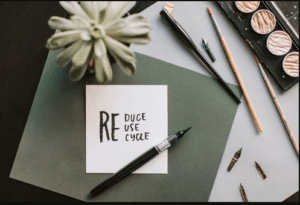How Your Business Can Become More Sustainable

This blog post will discuss some ways to make your business more
sustainable
. The first step is to reduce the amount of energy you use at your office by using less power and switching out old appliances for new
Office Technology Solutions
. Next, look at how often you print documents and see if there are any alternatives like scanning or emailing them instead. Finally, try increasing recycling in your building by adding
recycling bins
or, even better yet, composting!
Reducing Energy Consumption
One of the most important ways to make your business more sustainable is to reduce energy consumption. There are several things you can do to accomplish this, such as:
-Installing energy-efficient light bulbs and fixtures
-Making sure all appliances are turned off when not in use
-Encouraging employees to turn off lights, computers, etc. when they leave the office
-Replace old appliances with newer models that are more energy efficient
You can determine how much you’re currently spending on electricity by checking your electric bill for the kilowatt-hours (kWh) used per month or year. By reducing your kWh using these tips, you will help reduce your energy consumption.
Start Recycling
You probably already recycle at home, but did you know that it’s just as easy to do so in the workplace? Recycling can be pretty straightforward, depending on how many people work for your company and where your office is. You could even partner with a local shop or restaurant nearby to ensure all of that recyclable material gets where it needs to go!
Get Into A Greener Mindset
One way is to get into a green mindset. It would help if you were willing to do whatever it takes for your business, including cutting down on electricity usage or adding recycled materials. This means even if something costs double what another product would cost, you need to be willing to put your money where your mouth is and commit.
Many people think that sustainability and being green are synonymous with sacrifice, but it doesn’t have to be. You can make small changes that will add up over time and significantly impact.
Promoting Good Health In The Workplace
Promoting employees’ health is not only good for them, but it can also help your business save money. There are several ways to get started with improving employee wellness to create a more sustainable work environment. Making small changes every day will add up over time and net you better results than an intense push all at once. There are a few simple things that you can do right away to improve the health of your employees:
-Provide water bottles in break rooms for everyone and encourage them to refill their bottles throughout the day rather than buying disposable cups or plastic bottles.
-Promote healthy snacks by keeping fruit available at all times and plenty of low-calorie snacks.
-Create a culture of physical activity by offering discounted or free gym memberships, organizing walking meetings, and having wellness challenges throughout the year.
Promoting Teamwork In The Workplace
Sustainability is not only about reducing negative environmental impact. It is also about creating a workplace culture that values teamwork and cooperation. When employees feel like they are part of a team, they are more likely to be committed to the company’s goals and objectives.
There are many ways to promote teamwork in the workplace. For example, some companies have implemented team-building exercises, such as group problem solving or scavenger hunts. Others have created committees or task forces that allow employees to work together on specific projects. Whatever method you choose, the most important thing is to make sure everyone in the company is aware of the goals and objectives of the sustainability initiative.
Promoting Green Living Among Fellow Employees
One of the most important ways to make your business more sustainable is by promoting green living among your fellow employees. People can do many small things in their everyday lives to help reduce their environmental impact. Some simple tips for promoting green living among your colleagues include:
-Encouraging them to carpool or take public transportation whenever possible
-Making sure office equipment is turned off when not in use
-Using recycled paper products and biodegradable cleaning supplies
-Promoting energy conservation by turning off lights and computers when they’re not in use
-Organizing community outreach events to clean up parks and rivers
-Providing information about eco-friendly products in the office break room
Promoting green living among your employees will encourage them to take small steps every day that add up over time. Your business may not be able to become fully sustainable, but you can make an effort to reduce your environmental impact. There are many ways that companies of all shapes and sizes can do this! Implementing some of these changes can help your business run smoother and be more profitable in the long run. In addition, promoting sustainable practices among your employees can help improve their quality of life while also positively impacting the environment.


